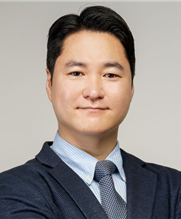Agile and true reactions are sought
ESG is a concept that has a lot of recent spotlights in the field of business. As stakeholders of companies expand from shareholders to an inclusive concept - citizens, governments, and the local community - the importance of business operation with responsibility is emphasized.
However, anti-ESG, a negative view of ESG, is spreading in the United States as the economy goes down and ESG investment is ineffective.
Professor Roh Tae-woo at the School of Business and his team (Choi Ji-hun at the Korea University's master's and doctoral inauguration course and Professor Lee Ji-hwan at KAIST) said that the corporate social irresponsibility affects financial achievements (ROA, ROE, etc) and non-financial achievements (ESG index) and hearted responses from the corporate governance level can alleviate negative effects due to corporate social irresponsibility.
The research team navigated the importance of ESG through a case study that compares two family-run companies (A and B) that have similar histories in the same industry. They focused on the succession of the CEO position to see how a company alleviates potential damages when it faces a crisis due to immoral cases and also focused on environmental dynamics to measure the impact of the external environments.
Especially, Professor Roh Tae-woo defined actions that disobey corporate social responsibility that Carroll (1991) suggested as 'organizational hypocrisy'. He collected corporate social irresponsibility and CEO succession information and apprehended the awareness degree of stakeholders regarding corporate social irresponsibility through text analysis. Also, through the Korea Institute of Corporate Governance and Sustainability and Data Analysis, Retrieval and Transfer System, he collected financial and non-financial achievements of companies that show the sustainability of a company.
As a result, it was found that the hypocrisy of a company presents a negative impact on the company's sustainability. In the period where organizational hypocrisy occurred in both companies, their financial achievements were worsened compared to that of the Global Financial Crisis in 2008, and the negative effect due to corporate social irresponsibility was more noticeable in financial achievements over non-financial achievements. The reason for that is the rapid spread of information thanks to environmental changes including FTAs, smartphones, and the internet. As the environment changed, stakeholders got more rights to choose and as a result, the negative impact of organizational hypocrisy was even more emphasized.
Professor Roh's research team suggests that to alleviate such negative impacts due to organizational hypocrisies, companies need corporate governance-level strategies. Agile change of CEO and introducing outside experts as the next CEOs are examples. Of course, when an outsider becomes the CEO, internal chaos can be harsher as the person needs time to get apt to the company's culture and there can be clashes against pre-existing company stakeholders. However, quickly changing the CEO and a new leadership by a CEO from outside of the company can present a hearted reflection of the firm to the stakeholders and can alleviate negative impacts due to corporate social irresponsibility, the research team said.
Professor Roh Tae-woo's research was published in an international academic journal, 「Journal of Cleaner Production」, on January 2, 2024. Professor Roh Tae-woo participated as a corresponding author, the first author is Choi Ji-hoon from the Korea University's master's and doctoral inaugural course, and Professor Lee Ji-hwan of KAIST participated as a co-author of the paper, 「The pitfalls of corporate social irresponsibility: Hypocrisy of family firms in South Korea」.



 '한양위키' 키워드 보기
'한양위키' 키워드 보기